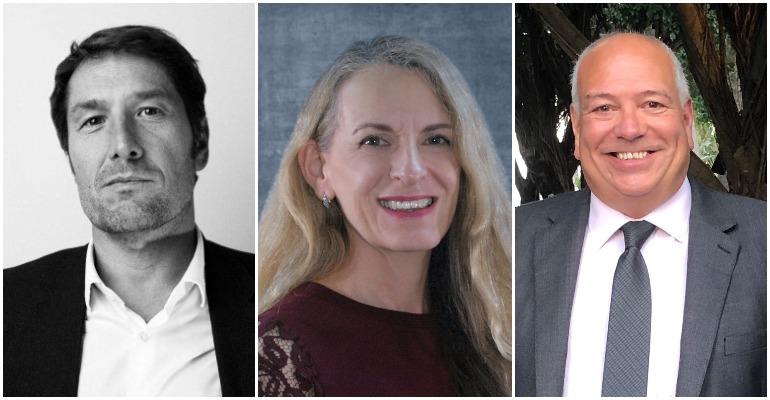‘The problem for the industry at present is the rotation of ships’ crews. Crew managers face fairly complex challenges moving seafarers on and off vessels and are having to route them through crew corridors,’ says Catherine Logie, business development director, marlins.
‘Part of the process involves selection, recruitment and training to ensure that a pool of certified seafarers are ready to mobilise when all the travel arrangements are in place. Ship operators don't want a situation where a crew member is called to mobilise but doesn't have mandatory compliance certification in place.’
Logie adds, ‘Where we can help is that all of our recruitment and training products and services are digital. We can offer online screening assessments and STCW e-learning so that an individual can take some of their mandatory training at home online and be ready with the correct certification in place so they're ready to move as soon as the agency or the employer needs them. The crisis has demonstrated the benefits of digital platforms to the shipping industry.’
On whether the ongoing issues facing crew members means a position on board cruise ships can still be considered attractive, Logie asserts, ‘We really like to help educate people coming into the cruise sector and to reassure them that a job in cruise is still very attractive. We want to give them accurate information so that newcomers can understand the world of cruise, or maybe what's changed if they've already had experience of working on a cruise ship and then are going back into it in this new COVID or post-COVID environment.’
Changing perceptions
Marlins currently has over 200 approved test centers across 48 countries, including on board cruise ships. By adopting a blended approach, Franks Corrales, customer experience manager, Marlins believes e-learning will be ‘looked at far more favourably in a post-COVID era, not only by ship owners, but also by flag states and the IMO, who have already said previously that e-learning is not something to be to be frightened of. We have offered e-learning for years and the industry is now seeing the full benefit of this approach. It is something that we should embrace.’
According to Corrales, ‘Some of the flag states have been very open to the use of e-learning to train ships’ crews, and they are becoming more receptive to the potential for e-learning now.
‘The more training the crew can do at home, before they arrive on board, the better. When the cruise lines press the button and are ready to hire again, it helps if the crew have already taken some mandatory training at home. With Marlins' approach, the crew print off their proof of study receipt and then the final Marlins assessment can be done as soon as they get on board. That saves time and gives great flexibility.’
On what crew training will consist of in the future, he adds, ‘it'll be up to the cruise lines themselves to come up with solutions for training and try to establish exactly what the [US Centers for Disease Control and Prevention] requires for the training of crew.’
Cooperation
Previously part of V.Group, Marlins was acquired by Ocean Technologies Group in June.
‘Ocean Technologies Group serves over a million seafarers and is investing as much as $30 million in developing future-ready learning solutions ... This is in sharper focus than ever after the significant COVID disruption reshaped the way seafarers are trained,' says Manish Singh, CEO, Ocean Technologies Group.
‘The Marlins English test is recognised the world over as the de facto standard for maritime English assessment … [We] will ensure it continues to develop and benefit from our investment programme.’
Raal Harris, group dreative director, Ocean Technologies Group also asserts Marlins’ advantage in having a 'reach into a global network of approved test centres, as well as being an assessment and e-learning provider.' He says ‘there are occasions where the ability to supply testing or training is hampered by the need for a physical location. Before we brought Marlins on board, this was a part of the jigsaw that we [Ocean Technologies Group] couldn’t cover.
‘A very good model is where you're blending the strengths of e-learning with the hands-on training you need to do on the ground. That is something that we didn’t have in our portfolio previously.’
Harris went on to add that ‘with unexpected events ... those ship operators that adopted a blended approach, where they have invested in online training provision, are the ones who have very quickly been able to orientate more of what they are doing online. They are making sure that training demand can be met in ways that are flexible and robust to global events and not limited by people's inability to travel.’
Looking ahead
‘Language proficiency is so intrinsic to safety for the cruise sector,' says Logie. ‘Looking ahead, we want to make sure that our Marlins testing services are available with online proctoring so that clients can be assured that the remote assessment is taking place in secure exam conditions. That's one concrete example of several technological improvements that we plan to bring to our clients.’
According to Logie, the recruitment interview has largely shifted to online recruitment processes, using video conferencing calls and a variety of digital platforms. ‘We are looking to upgrade our English language testing to fit in with this remote testing model. Within this, we still place an emphasis on the face-to-face spoken English language test because this is the primary communication skill,' she says. ‘We provide our services to cruise lines of all types, from boutique operators right through to river cruise companies, and up to some of the largest US and European-based cruise lines.’
Copyright © 2024. All rights reserved. Seatrade, a trading name of Informa Markets (UK) Limited.
Add Seatrade Cruise News to your Google News feed.  |

